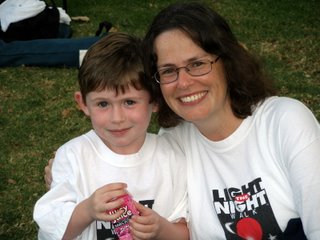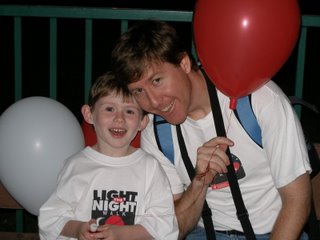Bellowing at Boredom
Dr. Jerry Slattum, my Art History professor at California Lutheran University, used to always say to his class that there are no bored people, only boring people. I always felt that this clever aphorism deserved an appropriate retort, as I often felt bored throughout my schooling and resented the suggestion that my boredom only meant that I was ordinary, non-creative, boring person. I mean, come on! Who has never felt the dull grip of tedium languorously squeeze your spirit and enervate your mind? It can happen at any time, whether you are engaged in a repetitive task or lacking any meaningful work, are forced to fish about for ways to make your existence more meaningful. None of us have a ready-made, purpose-driven life handed to us. Many of us are reluctant to embrace the well-worn paths that many mindlessly travel on their way to some predetermined, ersatz personal fulfillment. Life goals come and go, but it is in those boring moments between the striving to achieve these goals when we really learn something about ourselves, when we face the existential questions.
Of course, I never really gave boredom much thought. When I was bored, all I wanted was not to be bored, and thinking about boredom seemed way too...well, boring. As a young person, you want your life to be full of excitement, drama, and entertainment. You crave mystery and intrigue in your daily life--things that surprise and confound you, that give you a reason to strive, to seek, to find, and not to yield. This desire plays into Slattum's adage perfectly and separates out the exceptional explorers and creators of the world from the ordinary, hopeless mass of men. And yet, there I was still facing boredom, feeling bored, stuck in a suburban routine among the kids of accountants, lawyers, insurance agents, doctors, and defense contractors, living in their routines, wondering where I was going to find any adventure in life, wishing there was a Ulysses in me. But the mass of men have a warm embrace, which is why, I suppose, that Pink Floyd's Dark Side of the Moon lyric from "Time" ("Ticking away the moments that make up a dull day. You fritter and waste the hours in an off-hand way...") always makes me grin, knowing that some group of unmotivated, ordinary, dope-addled underachievers had peeked into some not-so-secret truth about our temporal existence and the vanity of our constant striving, even if they hadn't fully fleshed out their theory or critically analyzed their boredom.
So, even though I hadn't given boredom much attention, it turns out that Saul Bellow has given it a little more thought in his novel, The Adventures of Augie March. of course, to distance himself from the implications of these ideas, which are potentially a little too upsetting or radical for society, Bellow puts these words into the mouth of the genius-maniac carpenter-scientist Bateshaw while he and Augie are floating aimlessly in the Atlantic, the only survivors in a lifeboat after their merchant marine vessel, the MacManus, was destroyed by a German submarine.
"Boredom starts with useless effort. You have shortcomings and aren't what you should be? Boredom is the conviction that you can't change. You begin to worry about loss of variety in your character and the uncomplimentary comparison with others in your secret mind, and this makes you feel your own tiresomeness. On your social side boredom is a manifestation of the power of society. The stronger society is, the more it expects you to hold yourself in readiness to perform your social duties, the greater your availability, the smaller your significance. On Monday you are justifying yourself by your work. But on Sunday, how are you justified? Hideous Sunday, enemy of humanity. Sunday you're on your own--free. Free for what? Free to discover what's in your heart, what you feel toward your wife, children, friends, and pastimes. The spirit of man, enslaved, sobs in the silence of boredom, the bitter antagonist. Boredom therefore can arise from the cessation of habitual functions, even though these may be boring too. It is also the shriek of unused capacities, the doom of serving no great end or design, or contributing to no master force. The obedience that is not willingly given because nobody knows how to request it. The harmony that is not accomplished. This lies behind boredom."And I'm glad Mr. Bellow has provided this analysis for a retort to Dr. Slattum that I always wanted to make, but didn't have the discipline to think through. Dr. Slattum, we are all boring people because we can't escape our all-too-human condition! It is all too easy to belittle the "bitter antagonist" when you are trying to motivate students and differentiate the weak from the strong. But inevitably, we are all faced with the useless effort that leads to boredom. And how quickly boredom can get us stuck in that rut of believing we cannot change our circumstances, our very selves. Who hasn't found the comparison with others an anxiety inducing experience? Even Shakespeare, "when in disgrace with Fortune and men's eyes" felt this tiresome pang while "desiring this man's art and that man's scope, with what I most enjoy contented least." Certainly, adhering to social duties can be tedious and seemingly inescapable. But even when you wrest yourself free from the duties and habits, you find yourself faced with that gaping maw of time, ever ready to swallow you whole in your insignificance. You try to create meaning, to improve yourself, to change your life, to accomplish new goals, and often you succeed in alleviating your boredom for a time in work and play. But once at rest, you discover that the very seeds of boredom are still planted within you, knowing that they will bloom with time as new habits and responsibilities no longer serve their purpose and that you still want more out of life.
So, can we ever find that "great end or design" for which our capacities can serve willingly and obediently? Can we even hope to achieve that "harmony"? As a parent and an optimist, I'd like to say yes, especially so my son won't give up trying to find his way in this crazy world. And as a man in his mid-forties, facing a mid-life crisis, I still want to believe that all my efforts haven't been in vain, and that boredom is just another prod to motivate some meaningful changes in my life. And I suppose that's what Dr. Slattum was really getting at--boredom is telling you to use your time for something, anything. Only you can make your life meaningful. Only you can define and redefine that purpose, again and again, as time moves on inexorably, and you life slips away ever so quickly. "You may be bored, but don't be boring!" What better message could you give to anyone?




